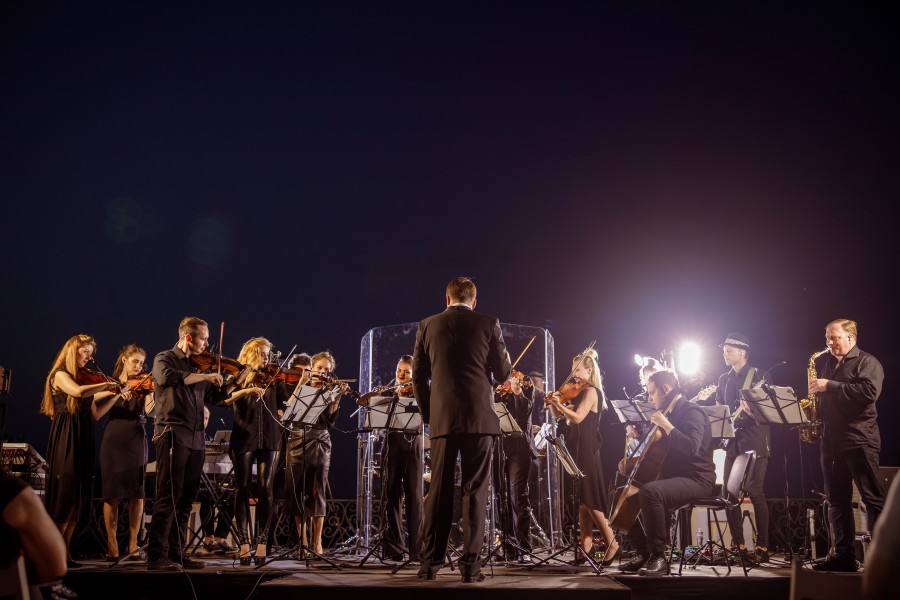Opera houses, galleries, theatres, and other cultural institutions are facing mounting pressures: tightening budgets, fluctuating visitor numbers, rising production costs, and the urgent need to modernise. Yet, one of the most valuable resources at their disposal for increasing visitor numbers and improving experiences remains underutilised: attendee data.
While industries such as retail and tech have long embraced data-driven strategies, much of the cultural world still relies on anecdotal evidence or broad ticket sales figures. These methods offer only a partial view of what’s really happening.
Much of the cultural world still relies on anecdotal evidence or broad ticket sales figures
To stay relevant and competitive, cultural institutions must shift away from an intuitive-based approach, towards one that is backed by intelligence. And that begins with better data collection.
The powerful impact of structured attendee data
Structured data refers to organised information that’s easy to store, access, and analyse. In the context of cultural events, this includes:
- Personal data (e.g. email addresses, postcodes, age brackets)
- Purchase history (e.g. booking dates, seating choices)
- Behavioural data (e.g. abandoned baskets, entry times, no-shows)
- Preferences and feedback (e.g. taste clusters, post-show surveys)
This data, when collected and structured properly, becomes the foundation for meaningful insight and decision-making.
No show: What happens when your audience is a mystery?
Without well-organised data, institutions face major blind spots. They can’t accurately identify:
- Who their loyal audiences are
- What programmes or marketing efforts are working
- Why attendance is falling
- How to price more effectively
- When audience members are at risk of disengaging
The result? Wasted marketing spend, less impactful programming, and lost opportunities to build lasting relationships with audiences.
From broadcasting to dialogue, with attendee data
For decades, cultural marketing has followed a "broadcast" model. That is, one message to many people, with little feedback. Today’s audiences, however, expect a conversation. They want to feel seen, understood, and valued.
To move from broadcasting to dialogue, organisations need structured data that enables them to:
- Understand individual preferences
- Monitor patterns over time
- Deliver relevant messages at the right time
- Adjust offerings based on actual audience sentiment


Your ticketing system is the foundation of your customer relationships
Your ticketing platform is the single most powerful source of audience data. It captures real behaviour: who bought tickets, when, for what, and how often.
However, many systems fail to provide the transparency, integration, and accessibility needed to use this data effectively.
A modern ticketing system should give you access to:
- Purchase and attendance data
- Contact and consent preferences
- Abandoned baskets (to support retargeting)
- Access control data (e.g. entry times)
- Audience feedback and reviews
This is where data-driven transformation begins.
Your ticketing platform is the single most powerful source of audience data
Case study: How Bühnen Graz is leading the way
Austria’s largest state theatre group, Bühnen Graz, has embraced the power of structured data through its work with SECUTIX, a modern ticketing and CRM platform. The results have been transformative:
- Integrated systems: Migrated to a cloud-based CRM, allowing real-time synchronisation between planning, ticketing, and communications.
- Smart marketing: Sends over 1.5 million automated emails per year, soon rising to over 2 million, including onboarding, reminders, transport details, and feedback requests.
- Personalised travel tickets: Delivers bespoke public transport tickets to patrons, via integration with local transport.
- AI-driven feedback analysis: Uses feedback to train AI models that inform future marketing and programming decisions.
- Next-level strategy: Exploring AI-driven content tagging, churn prediction, and deeper audience profiling based on sentiment.


Final takeaway: The spotlight’s on your ticketing system
The path to more effective programming, deeper audience engagement, and sustainable growth runs through your data.
Collecting it isn’t enough—you need the right systems and processes to make sense of it.
If your ticketing platform isn’t giving you clear, structured, and actionable data, it may be time to rethink it. Because in the world of cultural events, the organisations that listen best will lead the way.
SECUTIX’s approach to data collection
Unlike traditional ticketing providers that keep data locked away, SECUTIX puts the power of customer insights directly in the hands of organisations. By giving access to real-time, in-depth data, SECUTIX helps you optimise marketing, understand your audience, and fine-tune your offerings. Whether it’s personalising communications, adjusting pricing strategies, or creating tailored experiences, SECUTIX ensures your decisions are based on real insights, not guesses. Empower your organisation to engage with your audience like never before – because when you have the right data, the possibilities are endless.
Request a call back or demo
Find out how our solutions can open your world.
Our team is happy to consult with you about your goals or give you a demo of our products and offerings at any time.

Let's connect
Complete the form and connect with our team to explore how SECUTIX can meet your unique ticketing needs and elevate your audience experience.
